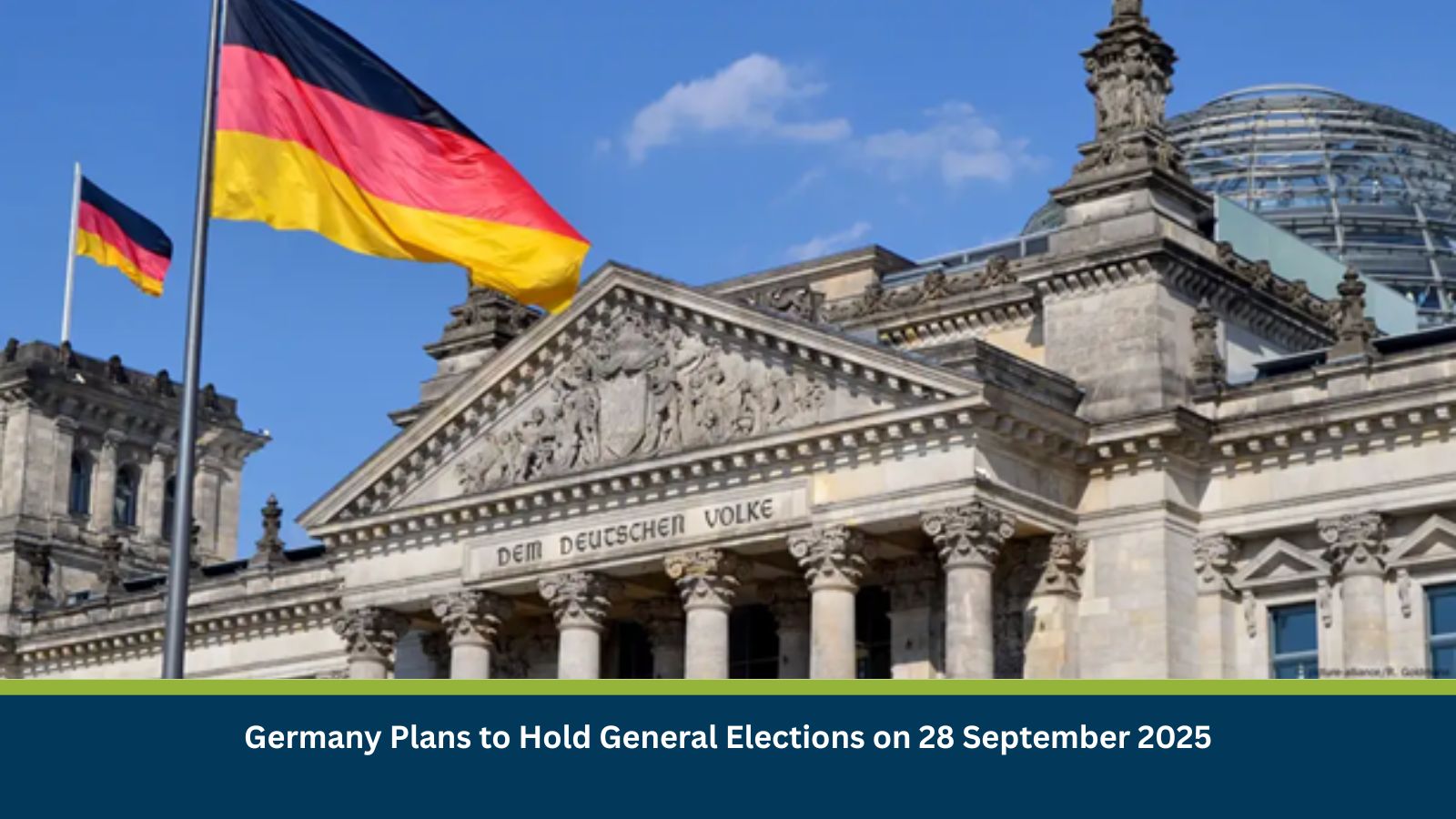What is Risk Analysis in the Context of Political Events
Risk analysis for political events focuses on evaluating how elections, policy shifts, and governance changes can impact stability, security, and business continuity. In Germany, federal elections are historically well-managed, with high voter participation and peaceful transitions. However, the current climate is more polarized, marked by the rise of far-right and populist parties such as the AfD and increasing fragmentation of mainstream coalitions. This creates elevated uncertainty around policy direction, coalition stability, and social cohesion. Political risk analysis in this context helps anticipate disruptions from heightened campaigning, protests, and post-election negotiations, which may affect not only Germany but also its role within the European Union and the global economy.
Executive Summary
- Date of Incident: 28 September 2025
- Location: Germany
- Risk Category: Political
- Severity Score: 3/5
- Confidence Level: 85%
Germany is set to hold federal elections on 28 September 2025 following political instability and a no-confidence vote against Chancellor Olaf Scholz. While elections are expected to proceed peacefully, the political environment is marked by polarization and the potential for disruptive campaign activity. The greatest risks lie in coalition delays, policy shifts, and localized unrest, particularly in major cities such as Berlin, Munich, and Hamburg. Businesses should prepare for several months of uncertainty spanning both the campaign period and post-election coalition negotiations, which could delay regulatory clarity and impact economic decision-making.
Current Updates
The election date was confirmed after a period of turbulence that included a loss of confidence in Scholz’s government. Campaigning has intensified, with populist narratives gaining traction. The AfD and other non-traditional parties are expected to gain significant ground, raising questions about coalition stability and Germany’s international positioning. Authorities anticipate peaceful conduct but acknowledge the likelihood of localized demonstrations and counter-protests in urban centers.
Known Hotspots and Sensitive Areas
Key sensitive areas include Berlin’s government district around the Reichstag, Chancellery, and Brandenburg Gate, as well as party headquarters in Berlin and regional capitals. Public squares and campaign venues such as Alexanderplatz (Berlin), Königsplatz (Munich), Rathausmarkt (Hamburg), and major transport hubs (Hauptbahnhöfe) are potential focal points for rallies and protests.
Impact on Transportation and Services
The elections are expected to cause moderate disruption (Severity 3/5) primarily from campaign rallies and localized protests. Traffic congestion, road closures, and rerouting of public transport (U-Bahn, S-Bahn, trams, buses) may occur in Berlin, Munich, Hamburg, and Cologne. Urban logistics and business deliveries could face delays, while airports and long-distance rail networks are unlikely to experience significant disruption. Direct threats to utilities or IT systems are low, though the risk of cyber campaigns and disinformation is elevated.
Recommended Actions
- Pre-Election Contingency: Conduct localized risk assessments for staff and facilities in major German cities. Plan for alternative routes and remote work readiness during election week.
- Workforce Safety: Issue advisories for flexible working or work-from-home options on election day. Establish communication protocols for safety updates and staff mobility.
- Asset & Cyber Security: Strengthen security controls at facilities, particularly in urban centers, and enhance cybersecurity monitoring to mitigate phishing, disinformation, or denial-of-service attacks targeting political and corporate systems.
- Stakeholder Communication: Maintain transparent, politically neutral communication with employees, clients, and partners regarding potential service delays or policy uncertainties during the election period.
Multidimensional Impact
The elections will have wide-ranging implications beyond the act of voting. From a regulatory perspective, a new coalition may introduce significant policy changes in energy, taxation, or environmental regulation, requiring businesses to adapt quickly. Social cohesion risks are elevated, with populist narratives deepening polarization and potentially leading to localized unrest. People safety remains a moderate concern, with demonstrations and campaign rallies posing risks of minor clashes, though widespread violence is unlikely. Business operations may face uncertainty, with investment and planning decisions delayed until coalition negotiations conclude. Communications and IT systems could be targeted by misinformation campaigns or cyber-attacks aimed at undermining trust in institutions. While the elections themselves pose minimal environmental or infrastructure risks, the outcome could alter long-term policies affecting sustainability, defense, and trade. Collectively, these impacts underline that the election represents not only a civic process but also a significant political risk event with medium-term operational implications.
Emergency Contacts
- Police: 110
- Fire/Ambulance: 112
- National Emergency: 112, 110
- The Federal Government (Bundesregierung)
- Federal Returning Officer (Bundeswahlleiter)
- Federal Ministry of the Interior and Community
Final Thoughts
Germany’s 2025 federal elections present a moderate but consequential political risk event. While the process itself is expected to remain orderly, the outcomes, ranging from prolonged coalition talks to shifts in economic and foreign policy, will affect businesses and markets for months beyond election day. For companies, the key takeaway is to anticipate uncertainty, safeguard operational continuity, and prepare for regulatory adjustments in the post-election period. Stay ahead of operational risks with real-time alerts, scenario modeling, and expert advisories with datasurfr’s Predict. Start your 14-day free trial of Datasurfr’s Risk Intelligence Platform today.






